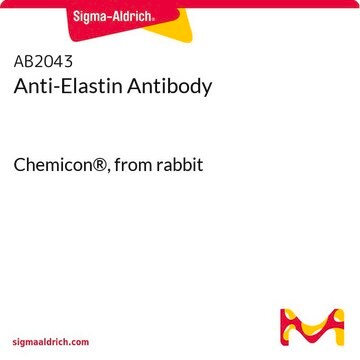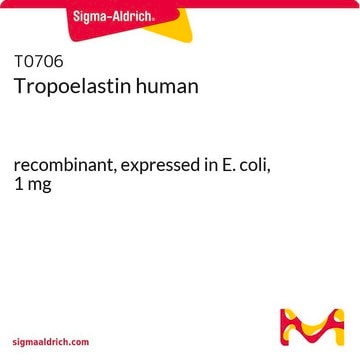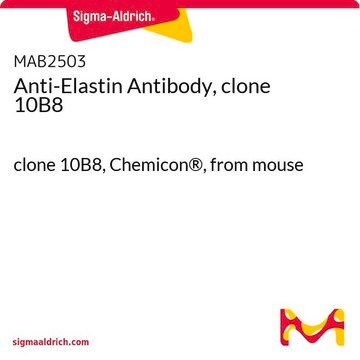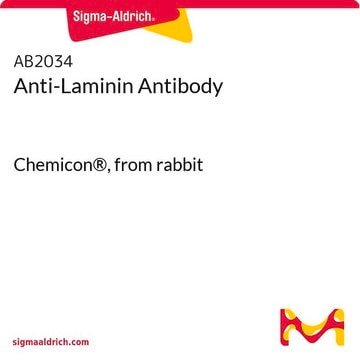SAB4200718
Anti-Elastin antibody, Mouse monoclonal
clone BA-4, purified from hybridoma cell culture
Synonym(s):
Anti-ELN, Anti-Tropoelastin
About This Item
Recommended Products
biological source
mouse
Quality Level
antibody form
purified from hybridoma cell culture
antibody product type
primary antibodies
clone
BA-4, monoclonal
form
buffered aqueous solution
species reactivity
sheep, hamster, bovine, goat, frog, rabbit, porcine, human, guinea pig, canine
concentration
~1.0 mg/mL
technique(s)
immunoblotting: suitable
immunohistochemistry: 10-20 μg/mL using enzyme-retrieved formalin-fixed, paraffin-embedded sheep arterial tissue sections
immunoprecipitation (IP): suitable
isotype
IgG1
UniProt accession no.
shipped in
dry ice
storage temp.
−20°C
target post-translational modification
unmodified
Gene Information
human ... EMILIN3(2006)
Related Categories
General description
Immunogen
Application
- immunohistochemistry
- immunoblot
- immunoprecipitation
Biochem/physiol Actions
Physical form
Disclaimer
Not finding the right product?
Try our Product Selector Tool.
Storage Class Code
10 - Combustible liquids
WGK
WGK 1
Flash Point(F)
Not applicable
Flash Point(C)
Not applicable
Certificates of Analysis (COA)
Search for Certificates of Analysis (COA) by entering the products Lot/Batch Number. Lot and Batch Numbers can be found on a product’s label following the words ‘Lot’ or ‘Batch’.
Already Own This Product?
Find documentation for the products that you have recently purchased in the Document Library.
Our team of scientists has experience in all areas of research including Life Science, Material Science, Chemical Synthesis, Chromatography, Analytical and many others.
Contact Technical Service






